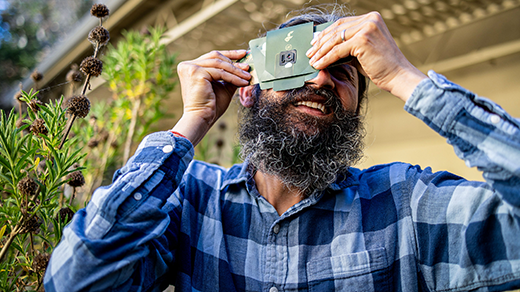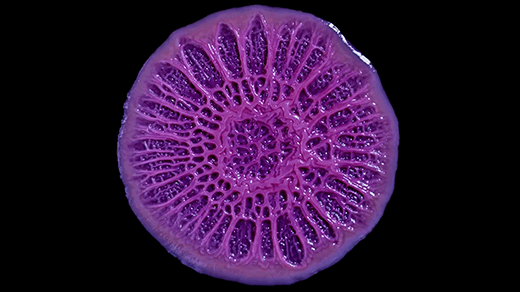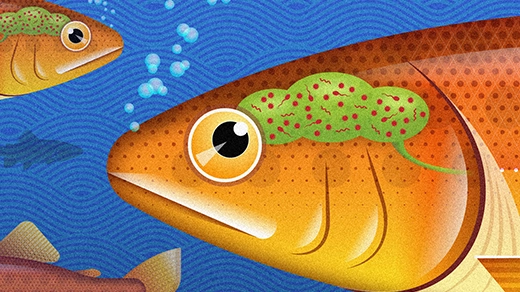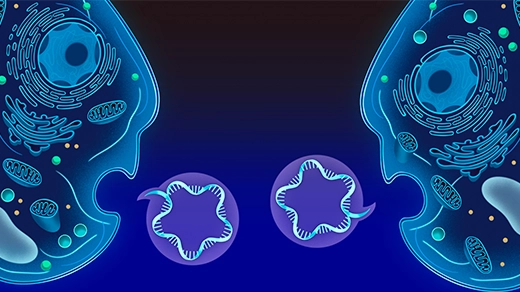What's up in
Microbes
Latest Articles
The Ecosystem Dynamics That Can Make or Break an Invasion
By speedrunning ecosystems with microbes, researchers revealed intrinsic properties that may make a community susceptible to invasion.
How Paradoxical Questions and Simple Wonder Lead to Great Science
Manu Prakash works on the world’s most urgent problems and seemingly frivolous questions at the same time. They add up to a philosophy he calls “recreational biology.”
How a Biofilm’s Strange Shape Emerges From Cellular Geometry
Micro decisions can have macro consequences. A soft matter physicist reveals how interactions within simple cellular collectives can lead to emergent physical traits.
Scientists Re-Create the Microbial Dance That Sparked Complex Life
Evolution was fueled by endosymbiosis, cellular alliances in which one microbe makes a permanent home inside another. For the first time, biologists made it happen in the lab.
Fish Have a Brain Microbiome. Could Humans Have One Too?
The discovery that other vertebrates have healthy, microbial brains is fueling the still controversial possibility that we might have them as well.
All Life on Earth Today Descended From a Single Cell. Meet LUCA.
The clearest picture yet of our “last universal common ancestor” suggests it was a relatively complex organism living 4.2 billion years ago, a time long considered too harsh for life to flourish.
Cells Across the Tree of Life Exchange ‘Text Messages’ Using RNA
Cells across the tree of life can swap short-lived messages encoded by RNA — missives that resemble a quick text rather than a formal memo on letterhead.
The Physics of Cold Water May Have Jump-Started Complex Life
When seawater gets cold, it gets viscous. This fact could explain how single-celled ocean creatures became multicellular when the planet was frozen during “Snowball Earth,” according to experiments.
Tight-Knit Microbes Live Together to Make a Vital Nutrient
At sea, biologists discovered microbial partners that together produce nitrogen, a nutrient essential for life. The pair are in the process of merging into a single organism.








